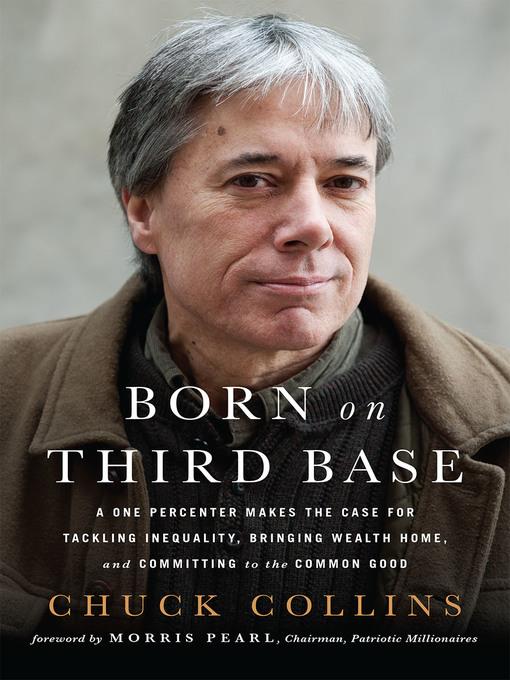
Born on Third Base
A One Percenter Makes the Case for Tackling Inequality, Bringing Wealth Home, and Committing to the Common Good
کتاب های مرتبط
- اطلاعات
- نقد و بررسی
- دیدگاه کاربران
نقد و بررسی

July 25, 2016
Collins (99 to 1), born to great privilege, takes a thoughtful, well-written, and carefully researched approach to solving the extreme imbalance in wealth distribution, directed toward one- and 99-percenters alike. Refreshingly, Collins not only talks the talk but walks the walk: at age 26 he gave up his $500,000 trust fund and dedicated his life to ending inequality. The book's first half outlines the problems of uneven wealth distribution, which have been made even more evident by the 2008 economic downturn. This part includes a section addressing racial issues in the U.S. and making the case for federal reparations for slavery. What Collins does even better than describing the challenge is, in the book's second half, outlining significant and specific solutions. He includes 10 elements of a program for the wealthiest 1% to follow, imploring readers to connect with both "people around us" and "people who are completely different." He makes an appeal for "humanity and empathy" at the book's very beginning, shows how he and others have worked to embody it, and reinforces the importance of this approach at the conclusion. Wherever readers fall on the economic scale, this is a worthwhile book to read, digest, and share.

October 15, 2016
As the great-grandson of Oscar Meyer, Collins grew up in a wealthy and advantaged family. He considers himself part of the privileged 1 percent, born on third base, with only a short hop to make it to home plate. But Collins believes it's time for our society to come to a different home, one where inequality is addressed in a new way, where the economy can be made more inclusive, and where the 1 percent can engage with the other 99 to become partners in transforming the future. Collins (99 to 1: How Inequality Is Wrecking the World and What We Can Do about It, 2012) once again presents a convincing and deeply thought-provoking argument in favor of not just the need for societal change but the importance of individual action in making change happen. Written in a well-crafted, conversational style, Collins' latest is a gentle yet clear reminder to readers that real change starts by looking outside ourselves and making even the smallest connection with others.(Reprinted with permission of Booklist, copyright 2016, American Library Association.)

























دیدگاه کاربران